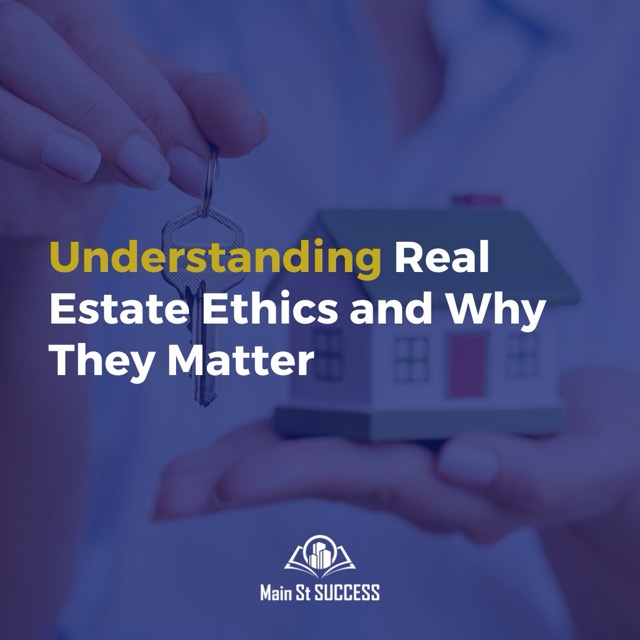Ethics play a vital role in the real estate industry, shaping how realtors conduct business, build relationships, and maintain a positive reputation. The importance of strong ethical standards cannot be overstated, as they help real estate professionals navigate complex situations and ensure fair treatment for all parties involved. Whether you’re pursuing a New York real estate broker’s license or just starting your career with a New York real estate course, understanding the principles of honesty, transparency, and confidentiality can make a significant difference in your professional journey.
Honesty: The Foundation of Trust
In real estate, trust is everything. Clients are making some of the biggest financial decisions of their lives, and they need to feel confident that their agent is guiding them honestly. Being truthful about property conditions, market trends, and pricing helps clients make informed decisions. Sugarcoating or downplaying a property’s flaws may result in short-term gains, but it can severely damage your reputation in the long run.
Honesty also means being upfront about your own qualifications and the services you provide. If you’re still working toward your real estate broker’s license or gaining more expertise in a particular area, let clients know. This level of openness may seem daunting, but it can foster greater trust and potentially attract more clients who value your authenticity.
Transparency: No Hidden Agendas
Transparency goes hand in hand with honesty. It’s about making sure clients have all the information they need to make informed choices. When presenting offers, reviewing contracts, or discussing any fees associated with a transaction, being clear and straightforward is essential. Clients should never feel like there are hidden details that could impact their decisions.
For those who are pursuing a New York real estate course, learning the intricacies of contracts and disclosures is crucial. Knowing what information must be disclosed and how to present it fairly will help you stay compliant with legal requirements while also maintaining a positive client relationship. It’s also important to manage client expectations transparently, especially in today’s competitive market where conditions can change rapidly.
Confidentiality: Protecting Client Information
Confidentiality is a key pillar of real estate ethics, and it’s one that should never be taken lightly. Realtors are privy to sensitive information, such as financial details, personal circumstances, and other private matters that clients may not want disclosed. It is the responsibility of the real estate professional to safeguard this information, sharing it only when legally required or when the client gives explicit permission.
If you’re working on obtaining a New York real estate broker’s license, you’ll learn that confidentiality is not just a best practice—it’s often a legal obligation. Violating a client’s trust by disclosing private information can lead to legal repercussions and damage your career. Practicing discretion and ensuring that client information remains protected helps build long-term relationships based on trust and respect.
The Role of Ethics in Professional Growth
Adhering to a strong code of ethics isn’t just about staying out of trouble—it’s also a smart career move. Ethical practices set you apart from competitors and can lead to more referrals, repeat business, and opportunities for career advancement. When clients know they can trust you, they are more likely to recommend your services to others, helping you grow your business organically.
For those working toward their real estate broker’s license, being known for ethical conduct can also make a significant difference in your career trajectory. It demonstrates to potential clients, colleagues, and even regulatory bodies that you’re committed to upholding the highest standards in the industry. This can be especially important when seeking leadership roles or establishing your own brokerage.
Addressing Ethical Dilemmas
Real estate often presents situations that test your ethical principles. For example, if a seller asks you to omit certain information about a property, or if a buyer offers a cash incentive to secure a deal, how do you respond? In these cases, your training and understanding of real estate ethics should guide your actions.
Being familiar with the ethical guidelines set by organizations like the National Association of Realtors (NAR) and your local real estate board can help you make sound decisions. When in doubt, prioritize fairness and integrity, and don’t hesitate to seek advice from a mentor or a colleague if you’re unsure how to proceed.
Conclusion
Ethics form the backbone of a successful and respected real estate career. Whether you’re just starting out with a New York real estate course or pursuing your broker’s license, integrating honesty, transparency, and confidentiality into your daily practices will not only help you avoid pitfalls but also strengthen your reputation in the industry. Remember, ethical conduct isn’t just about following rules—it’s about doing what’s right for your clients and your career.

